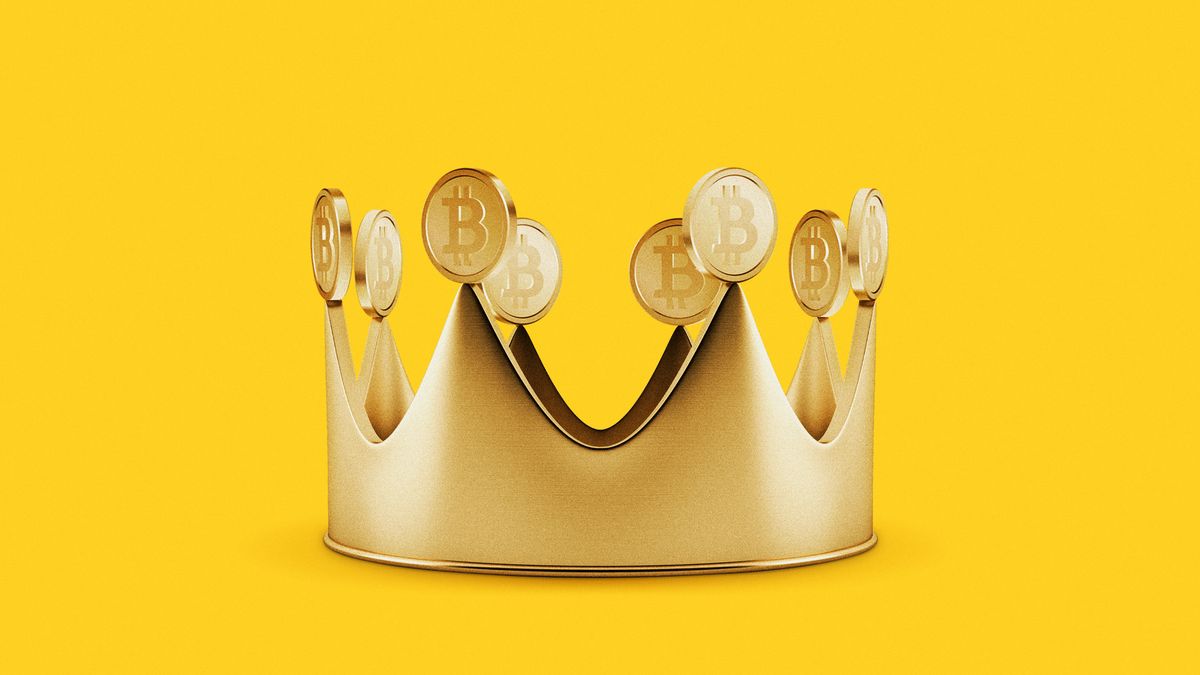The price of bitcoin this week topped $50,000 for the first since the end of 2021, marking a dramatic return for the world’s most popular cryptocurrency.
The rise was fuelled by “a rush of new-investor enthusiasm” and growing hype about a “cryptic-sounding” event known as “the halving” said CNN Business. Bitcoin’s comeback has been “one of the more surprising market stories” of recent months, said Yahoo Finance, and followed an “epic” collapse that “burned many investors and took down some of the industry’s biggest names”.
Since its 2009 launch, bitcoin has amassed an army of “loyal proponents who only see it rising in price over long timeframes”, said The Times Money Mentor. These fans include some of the world’s most respected trading firms, despite the digital currency’s many ups and downs.
Subscribe to The Week
Escape your echo chamber. Get the facts behind the news, plus analysis from multiple perspectives.
SUBSCRIBE & SAVE
Sign up for The Week’s Free Newsletters
From our morning news briefing to a weekly Good News Newsletter, get the best of The Week delivered directly to your inbox.
From our morning news briefing to a weekly Good News Newsletter, get the best of The Week delivered directly to your inbox.
Bitcoin currently remains a “way off its all-time high” of almost $69,000, in November 2021 said The Independent. But this week marked a “major milestone” in its recovery from below $20,000 at the start of last year.
Bitcoin’s resurgence has has been “remarkable”, agreed CNN Business, with the price surging by more than 200% from a 2022 low of $16,000.
The latest rise has been driven by an influx of demand and by new money from investors in newly launched bitcoin exchange-traded funds. In January, the US Securities and Exchange Commission (SEC) approved the first ever spot exchange-traded funds (ETFs) for bitcoin, opening up the asset to billions of dollars’ worth of institutional investment.
For Wall Street to finally start trading ETFs of bitcoin represents a “new era in the world of cryptocurrencies” said New York magazine. ETFs are “part of the finance industry’s lifeblood”. And crypto ETFs make it easier for financial institutions and pension account holders to trade and profit from digital currencies “without having to worry about encryption keys, or getting hacked, or anything like that”.
‘Not for the faint-hearted’
Some analysts believe the current rally could see the price of bitcoin climbing to a record new high, driven in large part by an upcoming “halving”, in April. The event is “hard-coded into bitcoin’s underlying network”, said The Independent, and takes place roughly every four years, when rewards for mining the cryptocurrency are “slashed in half”. This reduces the rate of new coins entering circulation, pushing the price of bitcoin higher.
Previous halvings have preceded record-breaking price rallies, and the next promises to deliver another “scorcher for crypto”, said Antoni Trenchev, the co-founder of crypto lender Nexo Capital. “Now that $50,000 has been topped, $69,000 followed by $100,000 look achievable in 2024,” he told CNN Business.
Investment bank Standard Chartered is also predicting that the bitcoin price will reach the $100,000 mark by the end of this year.
Yet experts warn that bitcoin remains hugely volatile. January was “crypto in a nutshell”, said Trenchev. Following the endorsement of a spot bitcoin ETF, the cryptocurrency’s price soared to $49,000, but then dipped to $38,500. New investors who endured that “baptism of fire” may now be celebrating this week’s gains, but crypto is “not for the faint-hearted”.
Explore More
To continue reading this article…
Create a free account
Continue reading this article and get limited website access each month.
register for free
Already have an account? Sign in
Subscribe to The Week
Get unlimited website access, exclusive newsletters plus much more.
Subscribe & Save
Cancel or pause at any time.
Already a subscriber to The Week?
Unlimited website access is included with Digital and Print + Digital subscriptions.
Create an account with the same email registered to your subscription to unlock access.

